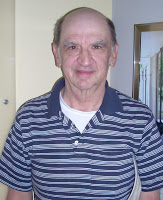Many people relate to gay men via stereotypes and pejoratives. Among those epithets are the words “twisted,” “bent,” “weird,” “queer,” “pervert,” “homo,” and so forth. Straight males relate to lesbian women mostly using the words “hot” or “I want to see some action;” a typical male double standard. I don’t know much about the type of problems lesbians face in the post WW2 world except from what the female members of our story group have revealed. However, I do know what damage those pejoratives did to me and other gay boys, teens, and young men.
Called by those names and bullied, some boys, teens, and young men chose to end their lives rather than continue living with the abuse and hopelessness. Unloving parents threw others out of their homes but they survived into adulthood only to face abuse by other adults who did not love or provide them with security. HIV and AIDS claimed many who escaped or lived through the bad times.
I consider myself fortunate. I was very naïve about same sex attraction and its portent for my future. Like many gay adolescents, I was confused as to why I was not interested in girls as puberty began. All my friends were finding girls very desirable. I desired to play sex games with boys more than girls.
My home life was not idyllic but neither was it oppressive. My parents were simply not around most of the time. We never talked about sex at my home although my mother and I exchanged “dirty” jokes once. (Her’s was funnier.) I did not act gay. I like to play sports for fun and not just to win at all costs. In high school, I mostly hung out with two smart friends and I was the oldest boy in my scout troop. I even wore my scout uniform to school one day of each Scout Week while in high school. Nonetheless, no one ever teased me or called me any gay related pejoratives.
My mother must have either known or suspected I was gay. I never brought up the subject of girls or spoke of dating a girl or taking a girl to a school dance. I did have bi-weekly sleep-overs with one or two of my neighborhood peers. I believe she suspected me because twice, without my knowledge or permission, she “arranged” for me to take the daughters of some family friends to school dances I was not planning on attending. Another reason I think she suspected is because she was so surprised when she received our wedding announcement six years after I graduated from high school. The point of all this is that I survived into adulthood and even survived marriage.
However, I did not survive without emotional and mental scars. Very few people survive unscathed from growing up closeted knowingly or unknowingly. At the time, no gay could serve openly in the military. I served 16-years, 9-months, and 11-days while closeted. The stress of exposure within marriage or military service takes a toll on one’s psyche. Whether in the military or not, whether married or not, projecting a false identity warps a person’s real identity into something unnatural. It is like forcing a square peg into a round hole or damming and diverting a river into a constricting canal.
The only way to insert a square peg smoothly into a round hole is to trim the corners of the peg. This can be done with care and concern using something like sandpaper or it can be forcibly hammered. Either method damages the peg and/or the hole alike. While damming a river and forcing it into a new channel or canal can bring benefits, when the levy or canal overflows or breaks, havoc results. It is the same with people. When a person forced to bend or squeeze their identity into someone else’s mold or lock-box, confusion, resentment, anger, death, or a broken “spirit,” can occur. Even one of the foregoing conditions could result in a broken person.
People allowed to have their real identity publicly on display without ridicule, will grow, undamaged, and flower into the person they were born to become.
© 23 February 2013
About the Author
I was born in June of 1948 in Los Angeles, living first in Lawndale and then in Redondo Beach. Just prior to turning 8 years old in 1956, I began living with my grandparents on their farm in Isanti County, Minnesota for two years during which time my parents divorced.
When united with my mother and stepfather two years later in 1958, I lived first at Emerald Bay and then at South Lake Tahoe, California, graduating from South Tahoe High School in 1966. After three tours of duty with the Air Force, I moved to Denver, Colorado where I lived with my wife and four children until her passing away from complications of breast cancer four days after the 9-11 terrorist attack.
I came out as a gay man in the summer of 2010. I find writing these memories to be therapeutic.
My story blog is TheTahoeBoy.Blogspot.com




